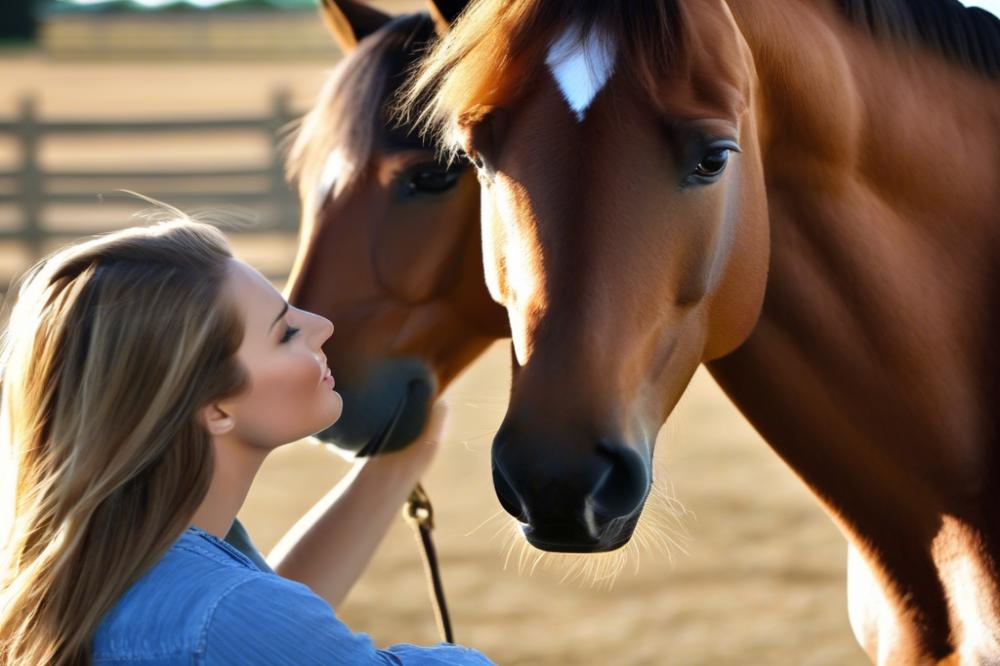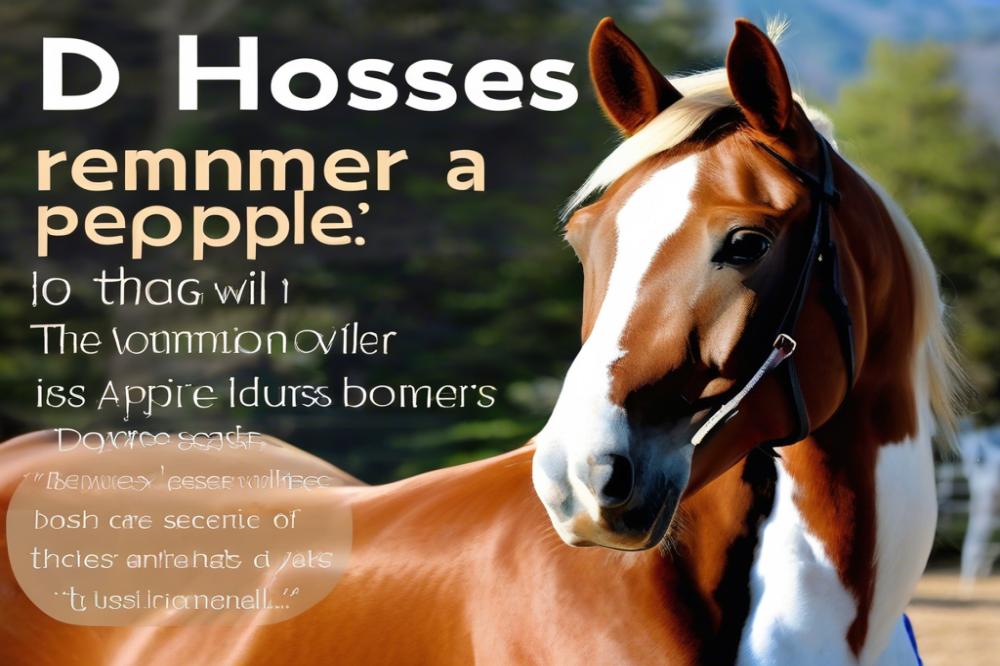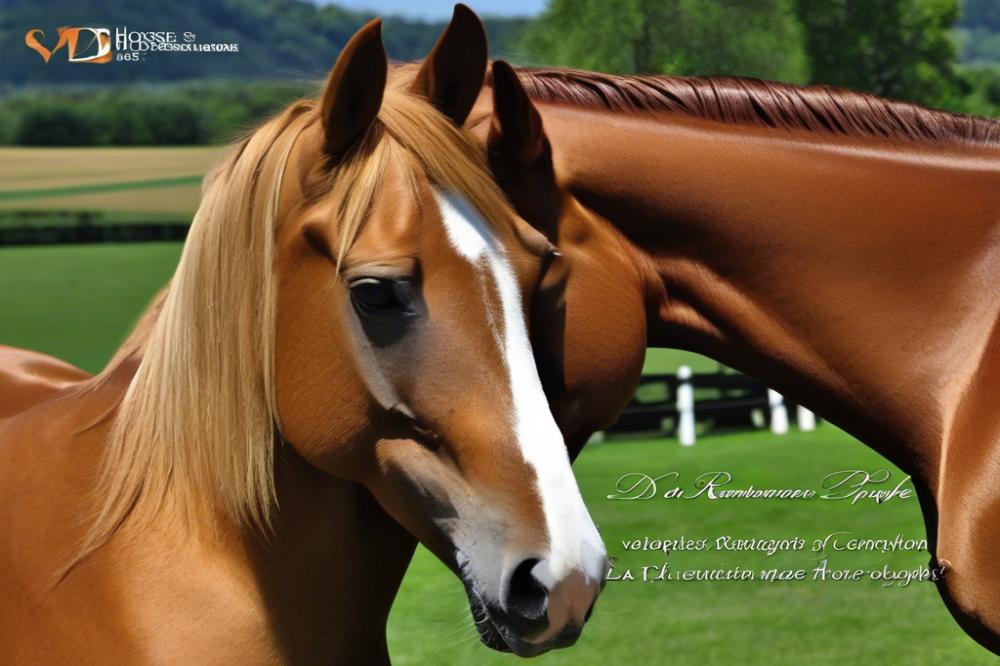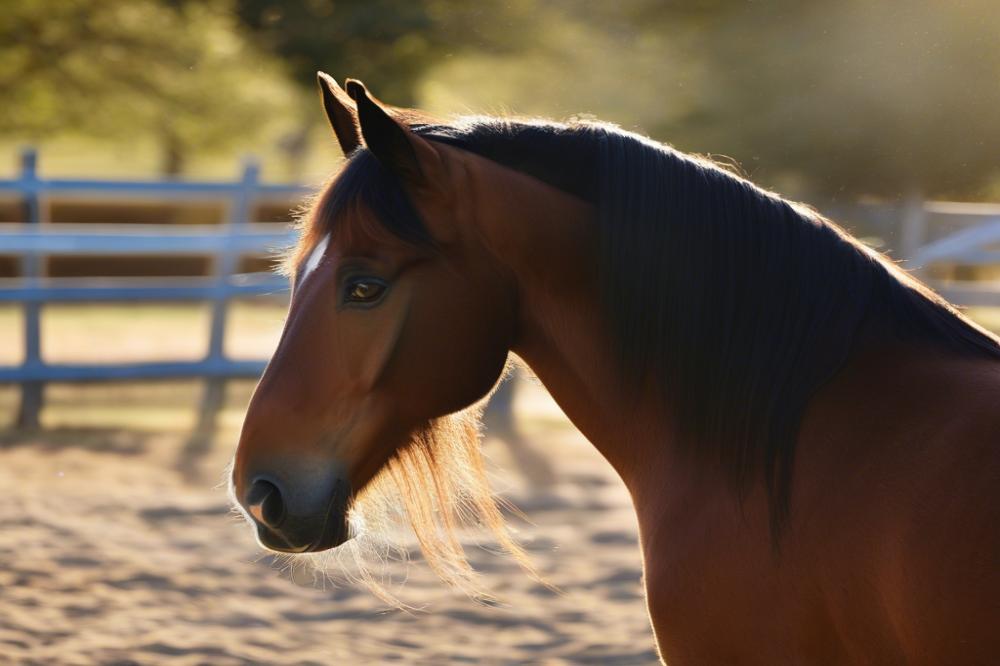The Bond Between Horses and Humans
When you think about it, the bond between horses and humans is pretty extraordinary. From the early days of domestication, people have recognized the strength and beauty of these magnificent animals. Many enjoy riding them, training them, or simply spending time together in the barn. There’s a special connection that forms, and it often feels as if horses can understand our emotions better than we can!
The Importance of Understanding Horse Memory

Understanding how horses remember is crucial for anyone involved in horse care. Animal memory plays a significant role in how horses behave. Recognizing this can help improve training techniques and handling practices. Let’s face it; no one wants to wonder if that horse they’re trying to care for remembers the good times or just the rough ones! When we unravel the mysteries of horse psychology, we unlock deeper insights into their needs and emotions.
Do Horses Remember People?

The big question on everyone’s mind is simple: do horses remember people? Picture this: a horse meets many faces throughout its life. Some visitors come with treats and gentle hands, while others might only show up in the saddle, for business or sport. Each interaction leaves an impression on a horse, but how long does that impression last? That’s where the intricate nuances of equine behavior begin to surface.
Some say that horses can recall specific humans and the experiences they shared, creating a rich tapestry of memories. This might be particularly true for those in the show ring, like the thoroughbred vs Arabian debate, where distinct personalities come into play. Each horse has its own personality. Several of the calmest horse breeds might seem less expressive, but they still form lasting bonds and memories with their caretakers.
In this journey, we’ll dive deeper into these fascinating questions. By exploring how horses remember, we not only learn about them but also about ourselves and the roles we play in their lives. After all, every ride, every brush stroke, and every quiet moment contributes to an unforgettable relationship. Buckle up as we trot down this intriguing path into the minds of our four-legged friends!
The Nature of Horse Memory

When we talk about horse memory, it’s fascinating how these animals process and store what they experience. Horses remember things through both their senses and emotions. For instance, a horse might react differently to a person wearing a specific hat. That kind of response shows that they’ve linked that hat to a past encounter. It’s as if they have their own personal file cabinets full of memories, waiting to be opened at just the right moment.
Horse memory can be divided into two main categories: short-term and long-term. Short-term memory helps them remember things like where the last carrot was dropped or how to navigate a new exercise. Think of it as a sticky note on the fridge. Long-term memory, however, is a different story. This is where horses store important information for years, like recognizing their favorite human or recalling a trauma. Picture it like a family photo album. These significant memories shape their behavior and reactions in various situations.
In many ways, horse memory is similar to human memory, but also distinctly different. Humans often rely on verbal communication to remind ourselves of things. Horses, on the other hand, focus on cues, tones, and scents. They don’t jot down notes or share stories. Instead, their understanding forms through experiences. You could say they have a form of animal memory that is attuned to their instincts and interactions. This difference is what makes their side of the horse-human bond so special.
With horse psychology in mind, it’s crucial to consider how past interactions affect their ability to remember. A positive experience, like a soothing grooming session, can create a long-lasting bond. Conversely, a frightening event might linger in their mind for ages. Good horse care includes understanding this complex memory system. By nurturing positive experiences, we can help horses thrive and be at ease. That way, both the equine and the human can enjoy a harmonious relationship.
Research on Horse Memory
Summary of Studies on Equine Cognition
Many researchers have looked into horse memory over the years. Horses, like us, have their ways of remembering. They can learn from experiences and adjust their behavior based on what they’ve encountered. Studies show that their brains are wired to store information in remarkable ways. Researchers have been amazed at how well horses can recall past events and who was involved.
Findings on Horses Recognizing Their Handlers and Other Familiar People
Have you ever noticed how a horse seems to perk up when they see a familiar face? Horses can recognize individuals they often interact with. They remember their handlers and caregivers quite well. This connection goes beyond simple recognition; it reflects a deep horse-human bond. When a new person approaches, the horse may seem aloof or wary, but with a familiar friend, it’s like they light up like a Christmas tree.
The Role of Scent and Visuals in Memory Recall
Scent plays a huge role in how horses remember. They have an incredible sense of smell! A familiar smell can spark memories just like a favorite song can remind you of a fun day. Visual cues also matter a lot. Horses combine sights and smells when recalling people or experiences. When a handler arrives wearing a specific hat or jacket, their horse might recognize them right away. This combination of horse psychology and animal memory reveals how they navigate their world.
Horse care involves understanding these aspects of equine behavior. Knowing how your horse remembers can help you build a better relationship. So, next time you approach a horse, think about what they may recognize—whether it’s the sound of your voice, your scent, or your smile.
Factors Influencing Memory Retention
Impact of Repeated Interactions on Memory Strength
Interactions play a huge role in how horses remember people. The more often someone is around, the stronger the connection may become. Just like us, horses are creatures of habit. When a person consistently spends time with a horse, that animal memory begins to form. Familiar faces help horses feel safe. The comfort from routines makes it easier for them to remember who cares for them. It’s like a good song; the more you listen, the better you know the tune. If you approach a horse with kindness and patience, they’re likely to remember you fondly.
Emotional Connections and Their Effect on Recall
Emotions are powerful in the world of horse psychology. Horses are sensitive souls, and they can feel our feelings. A warm hug or a soft voice can create a bond that lasts. Conversely, if a negative experience happens, a horse may remember that too well. The horse-human bond is often marked by trust and comfort. When you connect emotionally, your presence sticks in their mind. A horse is more likely to recall those moments of joy or fear. Little things, like a gentle pat or a soothing tone, can make a world of difference in their memory. It’s like how you remember that one friend who always made you laugh.
Environmental Factors That May Enhance or Hinder Memory
The surroundings where a horse lives can impact how they remember people. A calm and familiar environment is like a cozy blanket; it helps them relax and focus. Bright lights and loud noises can confuse them. If a horse feels stressed or scared in its surroundings, that memory likely won’t stick. Taking care of a horse means keeping their space comfortable and safe. When they feel at ease, their ability to recall faces improves drastically. Every time you show up with a treat or a friendly smile, those happy moments blend with their environment. It’s a recipe for a lasting memory.
Case Studies and Anecdotal Evidence
Have you ever wondered what goes on inside a horse’s mind? Many horse owners have stories about their beloved companions recognizing them after being apart for quite some time. One owner shared how, after a two-year separation, her mare rushed to her side as if she had never left. That moment was full of emotion. It’s clear that these creatures can form strong bonds with humans.
A trainer once told me about a horse named Charlie. He had been away for months due to training. When Charlie returned, his owner walked into the barn. Charlie’s ears perked up instantly. He whinnied loudly, and pranced around, signaling pure excitement. Equine behavior like this shows they can recognize voices and familiar scents even after a long time.
Interestingly, these stories aren’t just isolated events. Horse memory is quite remarkable. Many people notice similar things with their own horses. A friend talked about his gelding who could spot him from a distance, even in a crowded area. This connection isn’t just coincidence; it highlights the importance of the horse-human bond. Horses often remember caregivers, especially if they provided regular care or formed a close relationship.
Behavior is key when trying to analyze recognition. When a horse nuzzles a person they know, it’s more than just a friendly gesture. This action often indicates deeper feelings, showing trust and familiarity. Watching a horse trot happily towards someone can be heartwarming. It reflects the horse’s emotional memory and attachment. They communicate in ways beyond words.
Horse psychology also plays a significant role here. Every time someone spends time with a horse, it builds that relationship. The more consistent the interactions, the stronger the recognition can become. Horses who receive regular care often show a different level of attachment to their handlers. Anecdotes abound that reflect how these animals miss their humans when apart.
One horse owner recounted how her pony, Daisy, started nickering as soon as she pulled into the driveway. Surely, Daisy had been waiting like a kid on Christmas morning! Those little moments paint a vivid picture of animal memory. It’s as if horses have special memories tucked away, ready to spring to life when they see their friends again.
Observing these reactions helps shed light on how horses perceive their world. It’s not merely instinct; it’s a profound emotional connection. Their recognition isn’t just about familiarity. It’s also about the love and care they’ve received over the years, woven into the fabric of their memories. Truly, these majestic creatures have gifts that go beyond the surface.
Practical Implications for Horse Owners
How to Strengthen the Human-Horse Bond Through Memory
Building a strong bond with a horse means understanding horse memory. Horses remember faces, voices, and scents. This ability can be a real advantage for owners. Speak softly to your horse when you visit. Over time, those gentle words become familiar and comforting. When a horse remembers you, it’s like having an old friend waiting at the gate. You can also spend quiet time together, allowing your horse to come to you. This helps deepen the horse-human bond and builds trust.
Techniques for Training and Interacting with Horses
Training is both an art and a science. Use patience and creativity when teaching your horse new skills. Horses respond well to positive reinforcement. Offer treats or praises when they do something right. This method taps into their animal memory and encourages them to repeat good behaviors. Also, consider playing games with your horse. Simple activities can spark joy and enhance your connection. Remember, training sessions should be short and fun. Long sessions can feel like a chore for both of you.
Importance of Consistency in Handling and Care
Consistency is key in horse care. Always approach your horse in the same way. Use the same commands and cues each time. This helps with horse psychology. Familiarity makes your horse feel secure. It’s like driving on a well-known road instead of getting lost. Regular routines, such as feeding at the same time each day, also help. This predictability builds trust and stability in your relationship. Caring for a horse demands attention to detail. Make note of how they react to different situations. Over time, this understanding can lead to amazing friendships.
Wrapping Up the Journey of Horse Memory
Reflecting on everything we’ve discussed, it’s clear that horses have a remarkable capacity for memory and recognition. They don’t just remember familiar faces. They also recall the experiences tied to those faces, whether it’s a gentle hand coaxing them forward or the harsh tone of someone who startled them. This ability to recognize and remember people contributes to the deep bonds they form with their caretakers, trainers, and the little ones who often trot around them barefoot.
The significance of these relationships cannot be overstated. Each interaction contributes to a horse’s understanding of the human world. For many folks, a horse is a pet animal, offering companionship, joy, and lessons in trust. They may be large and powerful creatures, but they possess hearts that can feel fear, joy, and affection. A horse that feels comfortable around you will be more willing to engage in activities, whether that’s a playful gallop around the field or a precision routine in dressage vs jumping saddle competitions.
As you interact with these magnificent beings, remember it’s a two-way street. Horses respond to how we treat them, and it’s our responsibility to foster their well-being. Encourage your understanding of their behaviors and needs. Learning about the best ways to care for them, both physically and emotionally, is essential for nurturing that bond.
In wrapping up, let’s keep in mind that every moment spent building relationships with horses enriches not only their lives but our own as well. So the next time you’re in the presence of one of these majestic animals, take a moment to appreciate their memory, their spirit, and the delightful connection that can blossom between species. You never know; a simple gesture of kindness could lead to a lifelong friendship. Remember, when we understand them better, we can all hold the reins to a brighter future together.



